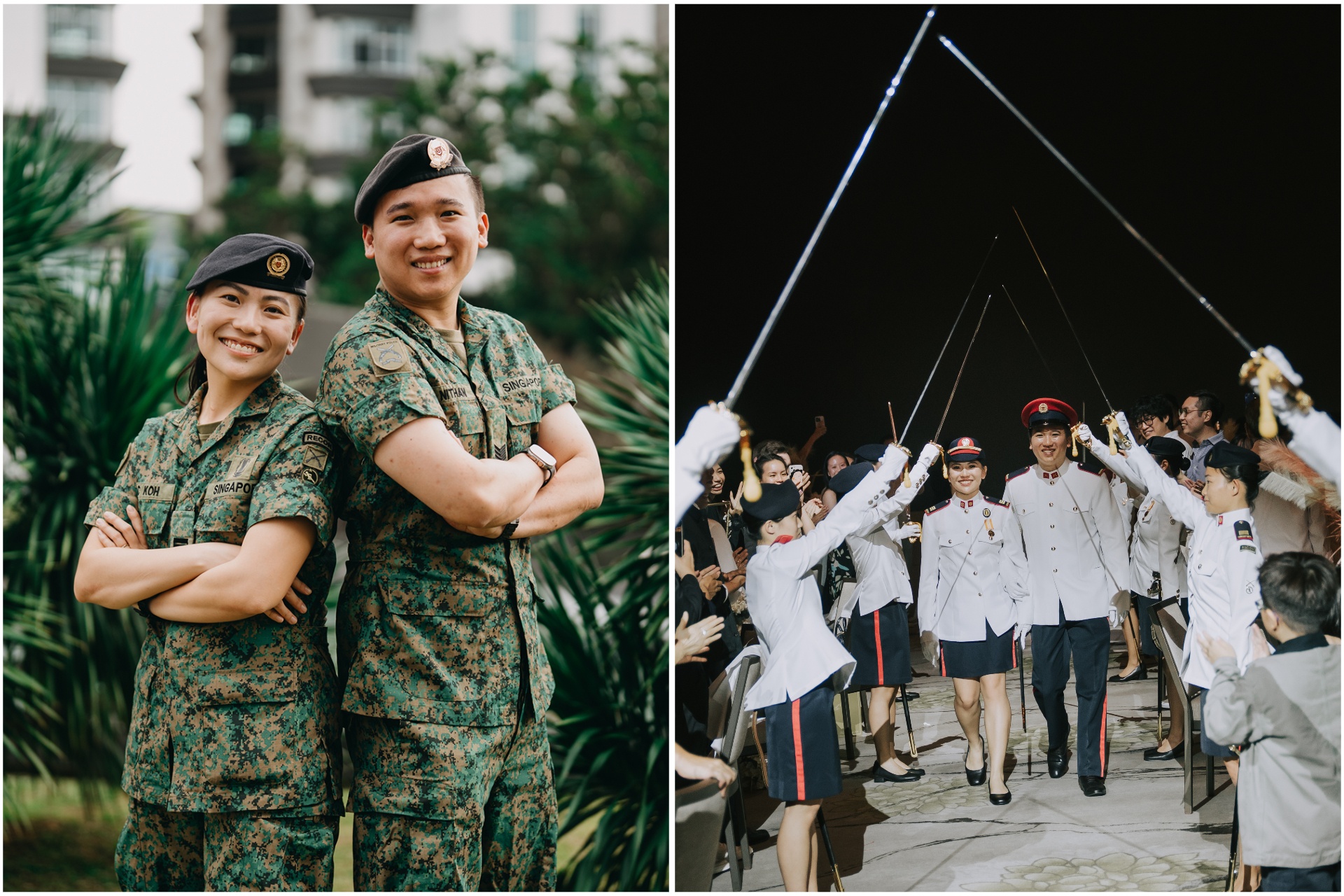PEOPLE
Vet appointed as SAF Senior Military Expert
19 Jan 2023
After completing his Full-time National Service as a Military Policeman in 2006, Military Expert (ME) 4(A) Lin Hong Yao left for Australia to study for a degree in veterinary medicine. He later stayed in the country to work as a vet.
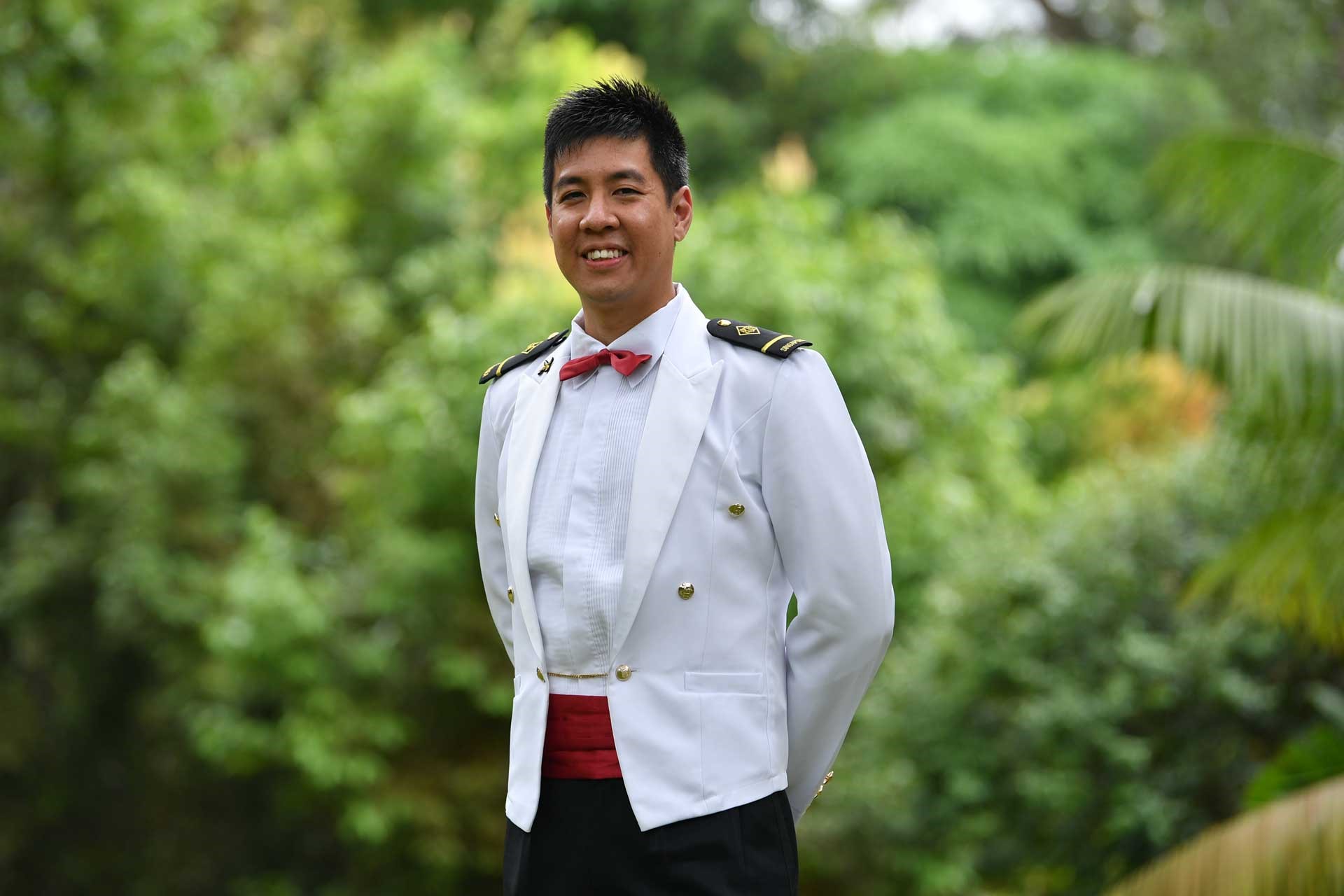
When he returned to Singapore after a decade, he was called up for his first In-Camp Training, and he asked if he could contribute to the Singapore Armed Forces (SAF) with his skills as a vet.
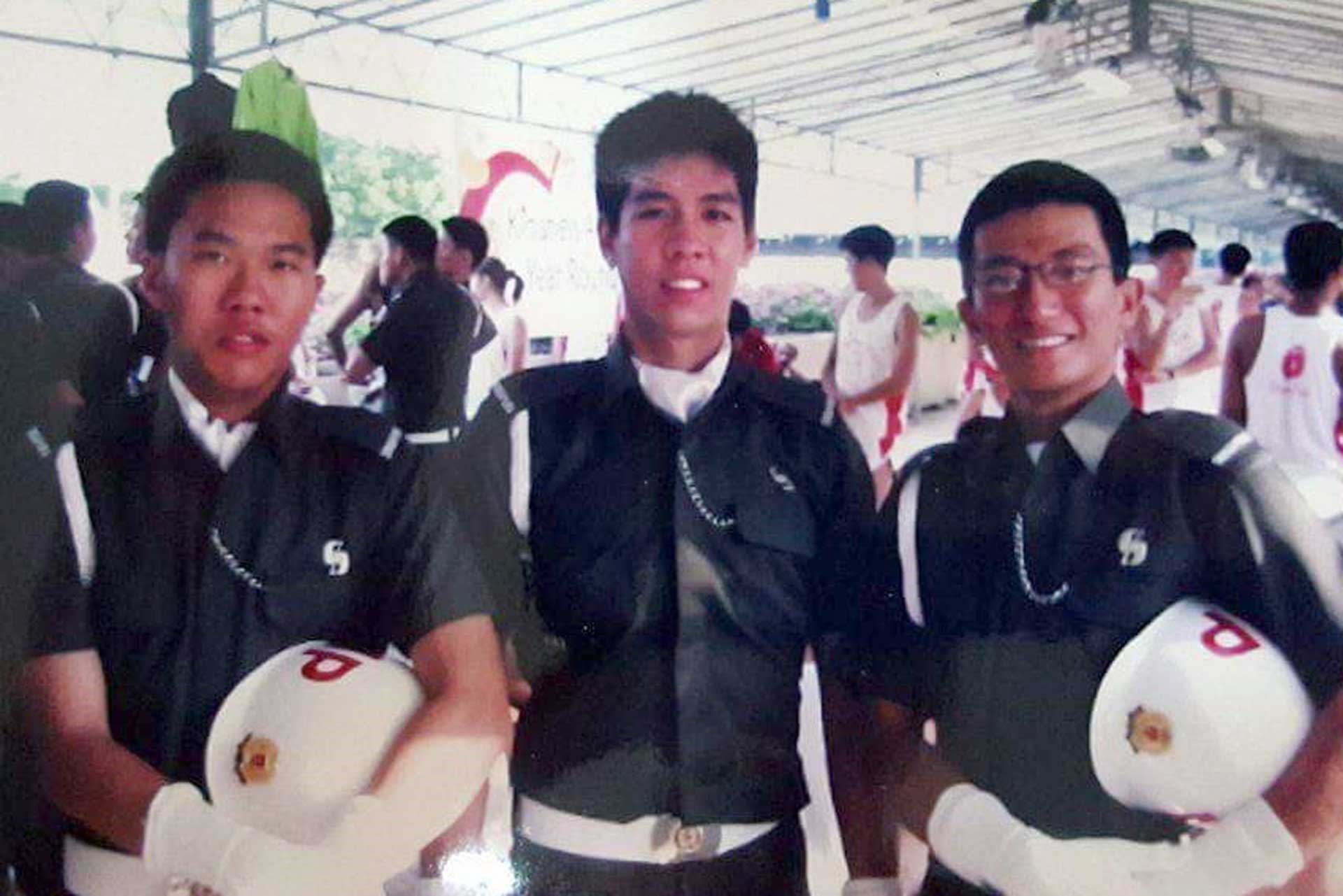
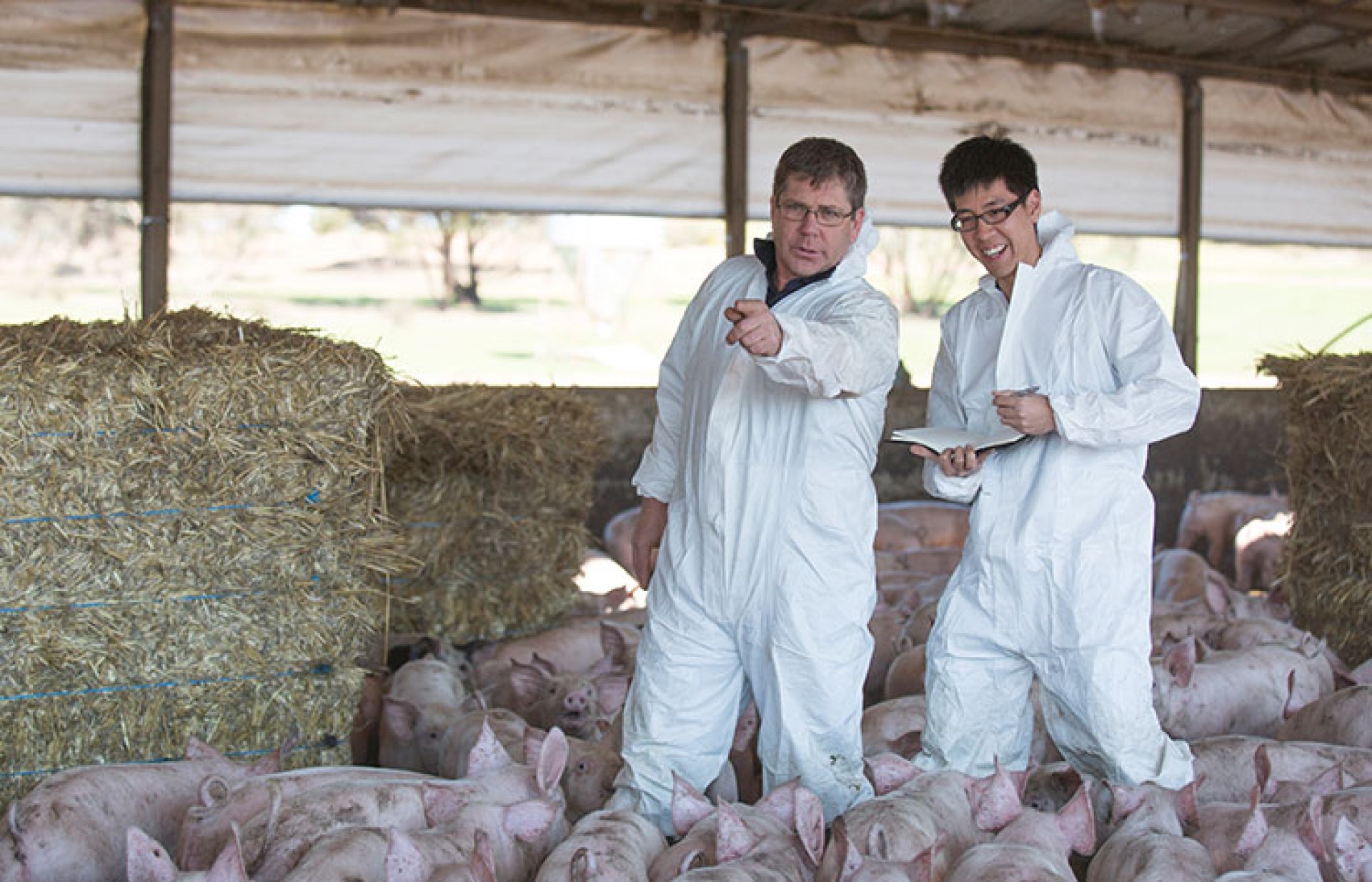
Caring for military working dogs
For the next few ICTs, ME4(A) Lin would serve as a vet in the Military Working Dog Unit. His role was to provide treatment and care for the SAF working dogs. He was motivated by a desire to provide the best quality care for the working dogs.
"We call them our canine partners; we treat them like how we would treat a human soldier," said the 36-year-old.
"Just like our soldiers, if they go for a field exercise when they're not feeling well or didn't have enough sleep the previous night, they are more likely to have a heat injury.
"So if we are able to do the preventative checks, we can prevent all these injuries from happening. But dogs can't talk, they can't tell us that they have a health problem, so it's really important that we step up our preventative care for them."
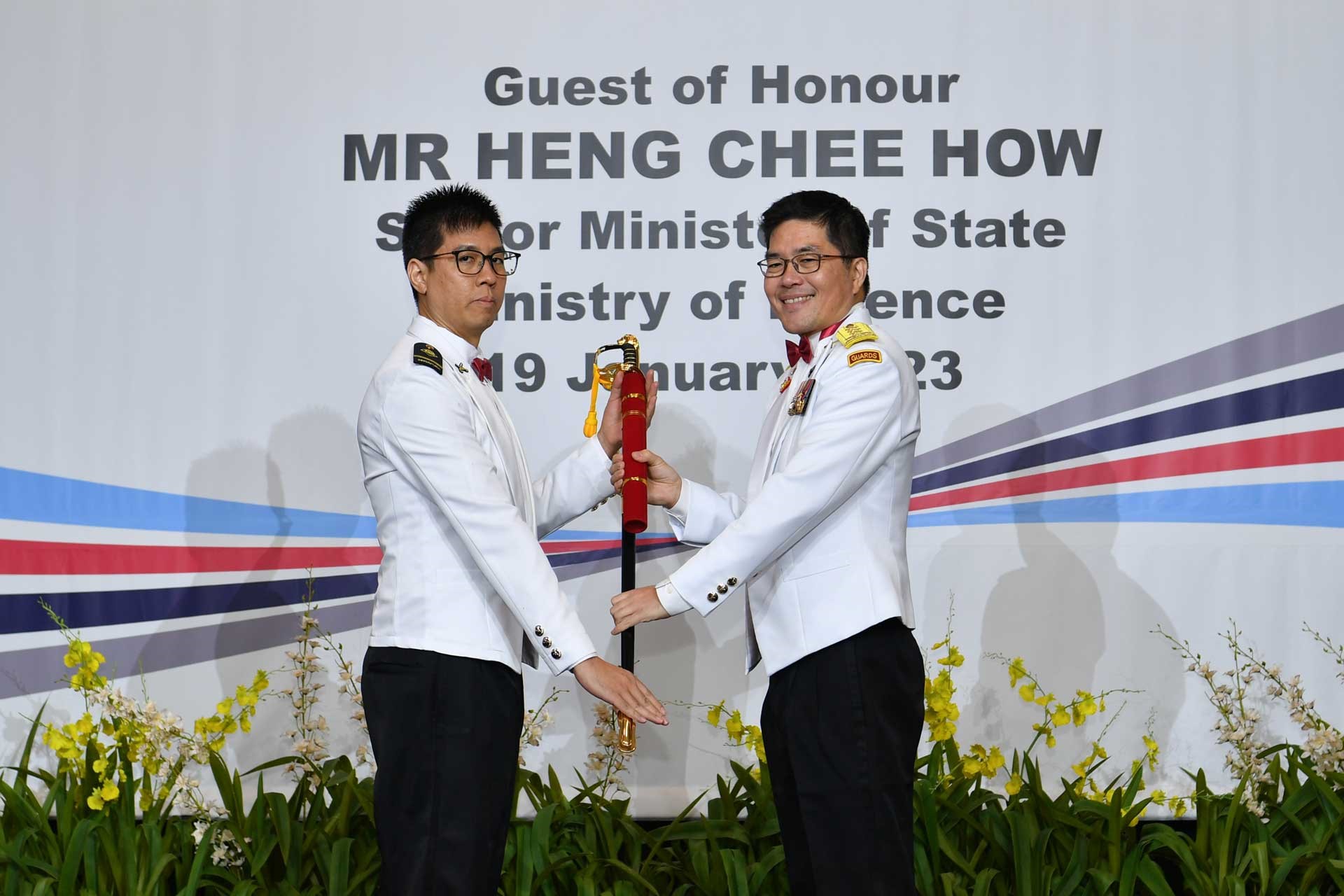
ME4(A) Lin was among the 109 servicemen and women who were appointed as Senior Military Experts (MEs) on 19 Jan.
The appointment ceremony marked the completion of the Military Domain Experts Course. The course trains MEs to assume roles in the SAF where in-depth expertise in areas such as engineering, intelligence, military medicine and cybersecurity is required.
As an NSman, ME4(A) Lin went through the course under the Enhanced Expertise Deployment Scheme. The scheme allows NS Warrant Officers, Specialists and Enlistees (WOSEs) with relevant expertise to become Senior Military Experts.
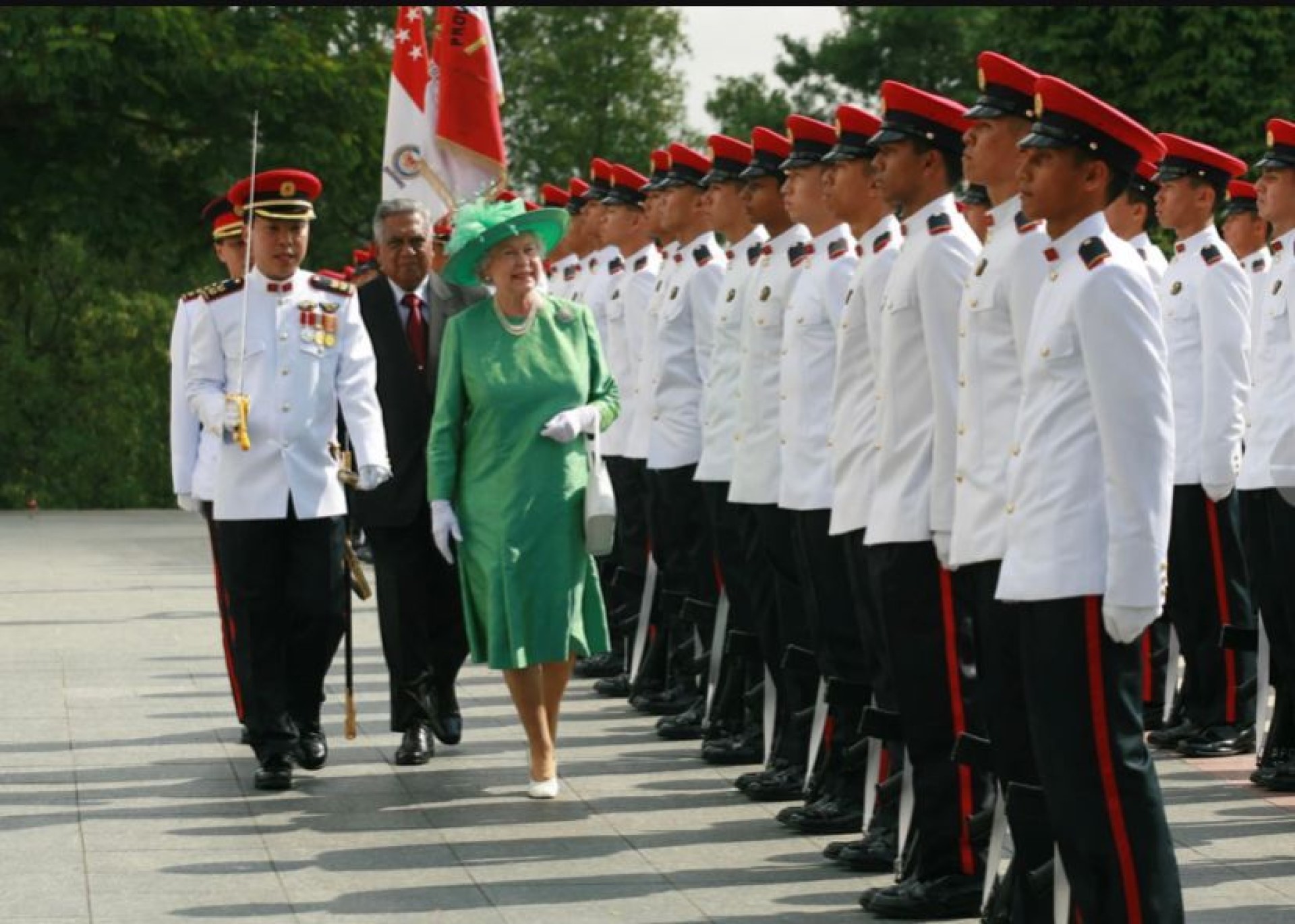
Improving work processes
During the course, ME4(A) Lin said that he picked up valuable management and leadership skills and hopes to use his new-found knowledge to further improve the work processes in MWDU.
For example, he wants to further strengthen the standard
operating procedures for treatments and care. This is so that when a new
vet or new handler takes over a working dog, he would know exactly what
to do and how to care for that particular working dog.
Worthwhile sacrifice
A key challenge that ME4(A) Lin faced during the course last year was juggling his time between training, work and family.
His wife was then pregnant, and his work as a regional director with a pharmaceutical company required him to travel extensively. Nevertheless, he pushed on with the support of his wife.
"Being able to contribute to our country's defence using my civilian skill set is important to me," he explained.
ALSO READ IN PEOPLE
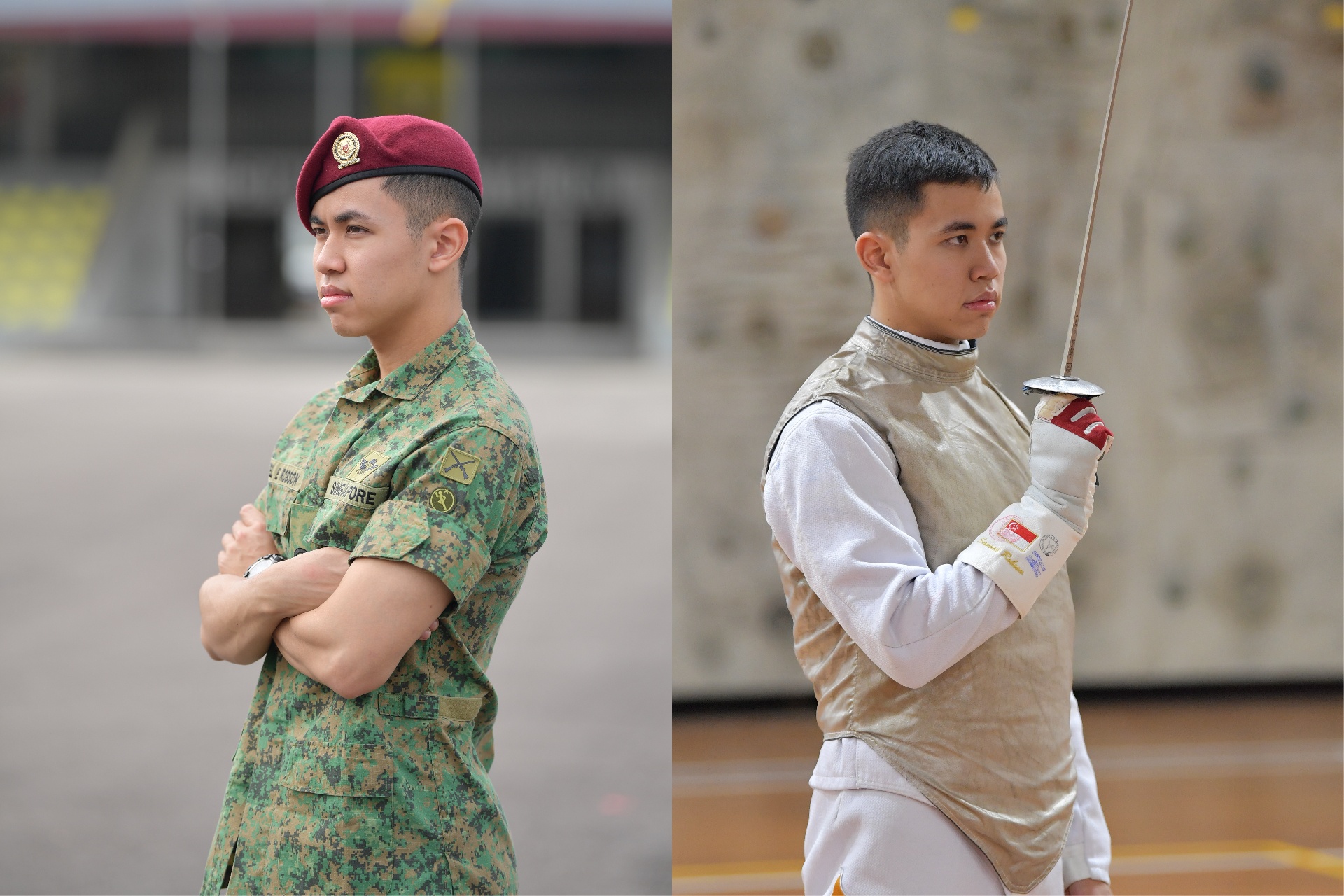
He’s an NSF Commando & medal-winning fencer
28 Jan 2026
His team won gold at the SEA Games 2025, and he hopes to represent Singapore in more competitions to come. Meet fencer CPL Samuel Elijah Robson, who is serving as a Commando during his full-time NS.
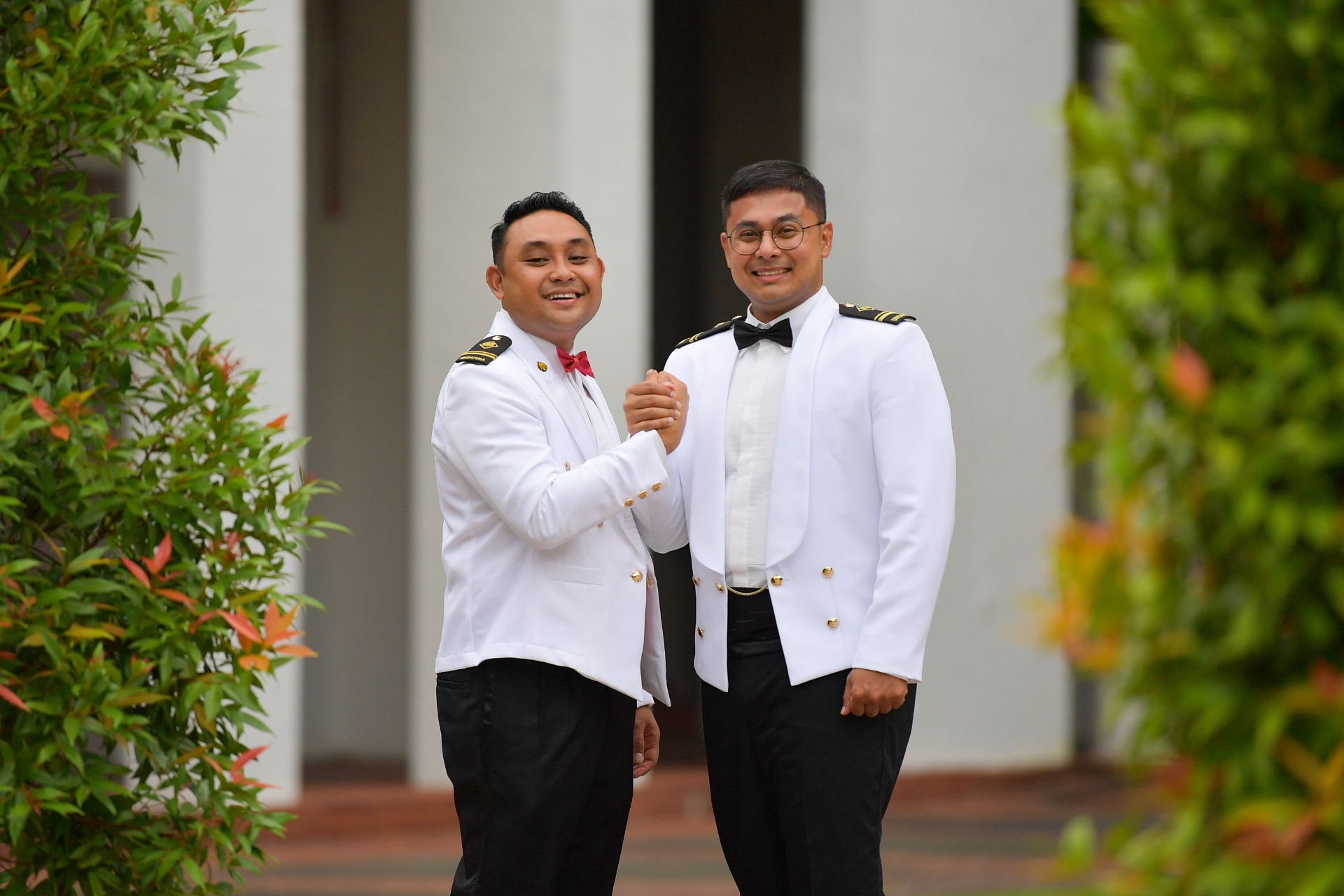
Bringing their civilian expertise to contribute more in NS
22 Jan 2026
On 21 Jan, the SAF welcomed its largest group of NSmen graduating under the Enhanced Expertise Deployment Scheme. Meet ME4 (NS) Muhammad Arief Aditya and ME4 (NS) Mohamed Najid Bin Mohamed Sultan, who are among these newly appointed military experts.
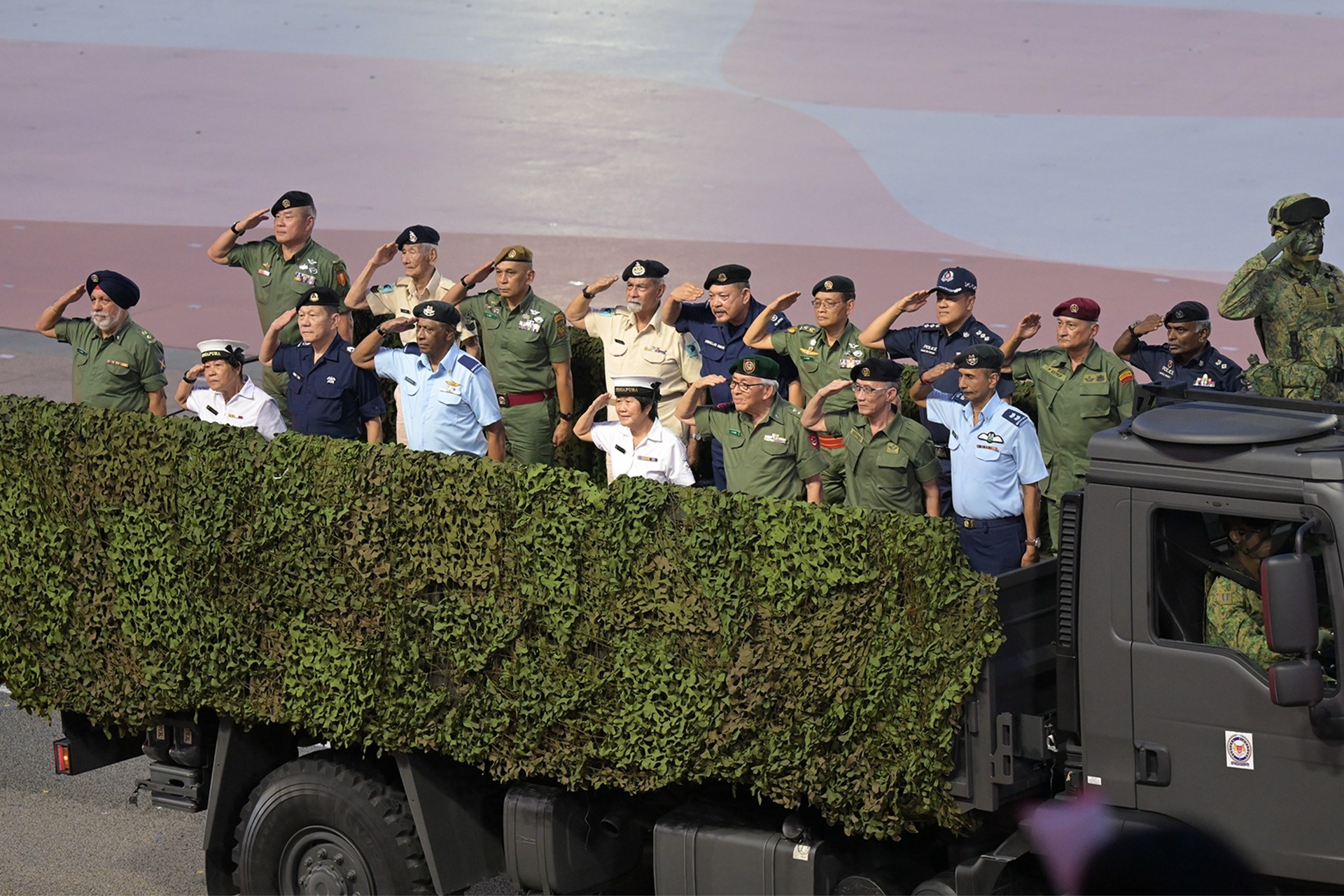
Guardians of legacy
15 Dec 2025
He helped build the RSAF’s first aircraft. She was one of the first women to join the navy. He managed communication crises in a time when a pager beep meant trouble. Meet these veterans who saw Singapore through turbulent times to build a strong SAF.


